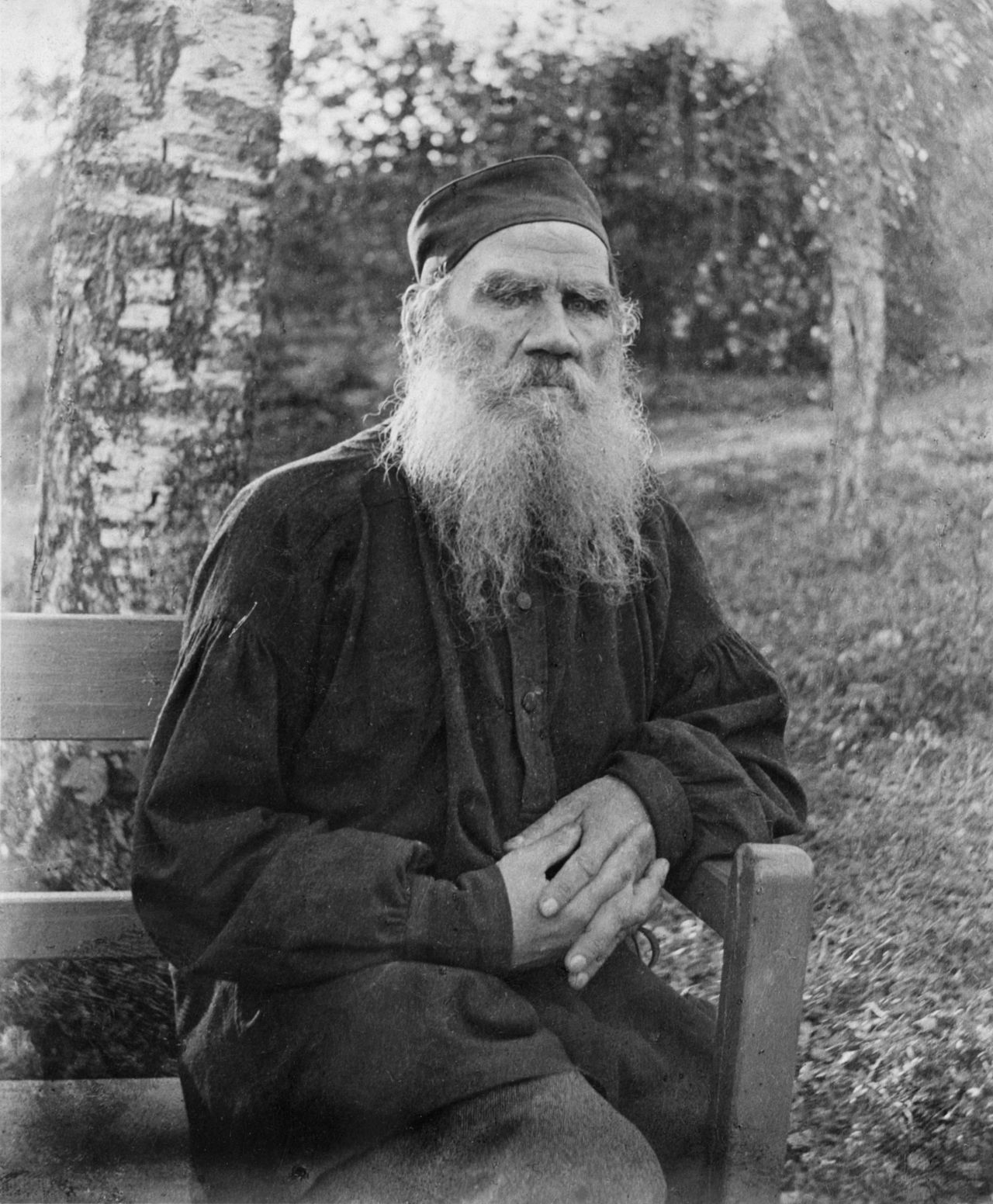Leo Tolstoy Archive
Written: 1855
Source: Text from WikiSource.org
Transcription/Markup: Andy Carloff
Online Source: RevoltLib.com; 2021

While we, of the artillery, were still busy about the ordnance, and placing the limbers and caissons, and pick- eting the horses, the infantry had stacked their arms, built camp-fires, constructed booths of boughs and corn- stalks, and were boiling their buckwheat grits.
It was growing dark. Pale blue clouds scudded over the sky. The fog, changed into a drizzly, damp mist, wet the earth and the overcoats of the soldiers ; the horizon grew narrower, and the surroundings were overcast with gloomy shadows. The dampness, which I felt through my boots and behind my neck, the motion and conversa- tion, in which I took no part, the viscous mud, in which my feet sHpped, and my empty stomach, put me in a very heavy and disagreeable mood, after a day of physical and moral fatigue. Velenchuk did not leave my mind. The whole simple story of his military life uninterruptedly obtruded on my imagination.
His last minutes were as clear and tranquil as all his life. He had hved too honestly and too simply for his whole-souled faith in a future, heavenly Hfe to be shaken at such a decisive moment.
" Your Honor," said Nikolaev, approaching me, " you are invited to take tea with the captain."
Making my way between the stacked arms and the fires, I followed Nikolaev to Bolkhov's, dreaming with pleasure of a glass of hot tea and a cheerful conversation, which would drive away my gloomy thoughts. " Well, have you found him ? " was heard Bolkhov's voice from a corn-stalk tent, in which a candle was glimmering.
" I have brought him, your Honor ! " was Nikolaev's reply in a heavy bass.
In the booth, Bolkhov sat on a felt mantle, his coat being unbuttoned, and his cap off. Near him a samovar was boiling, and a drum stood with a lunch upon it. A bayonet, with a candle on it, was stuck in the ground. " Well, how do you like this ? " he said, proudly, survey- ing his cozy little home. Indeed, the booth was so com- fortable, that at tea I entirely forgot the dampness, the darkness, and Velenchiik's wound. We talked about Moscow and about objects that had no relation whatso- ever to the war and to the Caucasus.
After one of those minutes of silence, which frequently interrupt the most animated conversations, Bolkhov glanced at me with a smile.
" I suppose our morning conversation must have ap- peared very strange to you ? " he said.
" No. Why should it ? All I thought was that you were very frank, whereas there are some things which we all know but which one ought not to mention."
" Not at all ! If I had a chance of exchanging this life for a most wretched and petty life, provided it were without perils and service, I should not consider for a minute."
" Why do you not go back to Eussia ? " I said.
" Wliy ? " he repeated. " Oh, I have been thinking of it quite awhile. I cannot return to Eussia before receiv- ing the Anna and the Vladimir crosses, — the Anna deco- ration around my neck and a majorship, as I had expected when I came out here."
" But why should you, when, as you say, you feel unfit for the service here ? "
" But I feel myself even more unfit to return to Eussia in the condition in which I left it. This is another tradi- tion, current in Eussia and confirmed by Pdssek, Slyeptsov, and others, that all one has to do is to come to the Cau- casus, in order to be overwhelmed with rewards. Every- body expects and demands this of us ; and here I have been two years, have taken part in two expeditions, and have not received anything yet. I have so much egotism that I will not leave this place until I am made a major with the Vladimir and Anna around my neck. I have got so far into this, that nothing will mortify me so much as to have Gnilokishkin get this promotion, and me not get one. Then again, how can I show up in Eussia before my elder, the merchant Kotelnikov, to whom I sell my grain, before my Moscow aunt, and before all those gentlemen, after two years in the Caucasus, without any advance- ment ? It is true, I do not care to know these gentle- men, and, no doubt, they care very little for me ; and yet a man is so built that, although he does not care one bit for such gentlemen, he wastes the best years, the whole happiness of his life, and his whole future on account of them."